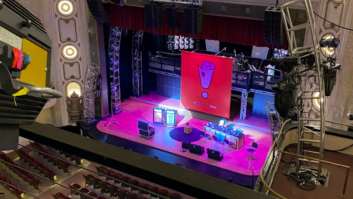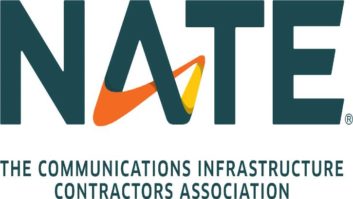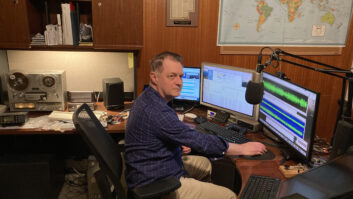Former radio pirates — people who have operated unauthorized stations in the past — cannot hold low-power FM licensees. When the FCC debated creation of the LPFM service, it briefly considered allowing such licensing, suggesting that former pirates could be “rehabilitated”; but it decided against that in the rules authorizing the service.
The restriction could change if S. 352 passes Congress. The Senate Energy and Commerce Committee has inserted such language into that bill (which also would eliminate third-adjacent channel protections of full-power FMs in order to fit more low-power stations on the band).

Stephen Provizer. ‘You are eliminating people who have demonstrated serious interest and skills in radio, along with a concern for serving the public interest, convenience and necessity.’ Every day, movie stars and politicians check in to rehab to clean up and get sober. My mother, who unfortunately sustained some injuries in a fall, is also now in rehab.
You gotta love that this word “rehabilitation” is being used to describe the process proposed to make ex-radio pirates fit for active legal duty as broadcasters.
I’m an ex-pirate myself, having started and run Radio Free Allston and Allston-Brighton Free Radio. I may have my faults, but my straight credentials are intact: I’m a family man, with a steady job teaching media to youth in East Boston. (Alright, I play the trumpet — a fairly suspect activity — but still not against the law.)
In sum, I’m hardly a candidate for rehab. I’m fairly certain I am not the only ex-pirate who has managed to escape from a life of crime.
Look, I don’t want to reduce the struggle for access to community media to absurdity, but how can the idea that ex-pirates not be given a chance to apply for LPFMs be taken seriously? It’s not like you’re looking to hire hookers to teach chastity classes.
In fact, if you exclude this group, you are eliminating people who have demonstrated serious interest and skills in radio, along with a concern for — as the expression goes — serving the public interest, convenience and necessity.
We tried to generate a sense that ordinary people should have the privilege to access media in their community and, in many cases, we made that possible. Notice I wrote “privilege” and not “right,” but that’s another discussion.
The majority of us did not want to interfere with other stations, and we either acquired the technical expertise to avoid it or got the assistance of people who could.
As far as those who were more confrontational and ignored the problem of interference: Can you really imagine these people setting up bogus non-profits and recruiting subversive shadow boards of directors; then, with LPFM license in hand, cranking up the juice of their strictly controlled, type-accepted transmitters and obliterating the signals of every KISS 108 within 250 miles?
Please. This is a self-selecting group who would rather continue playing a cat-and-mouse game with the FCC rather than be caught dead consorting with “The Man.”
So looked at objectively, not punitively, it’s obvious that ex-pirates should be allowed to apply for and operate LPFMs. We are an energetic, creative and passionate bunch.
You’d think that in its current somewhat rocky shape, the world of radio would welcome our energy — if not with open arms, at least with equal access to the online FCC application system.
Provizer is currently a part-time teacher at the Dever-McCormack School in Dorchester, Mass. and hopes to eventually find a job with medical benefits. He says he founded the former pirate station Radio Free Allston and community stations Allston-Brighton Free Radio and Zumix Radio. He blogs about music at:bit.ly/cdFfdn.
Radio World welcomes other points of view.












